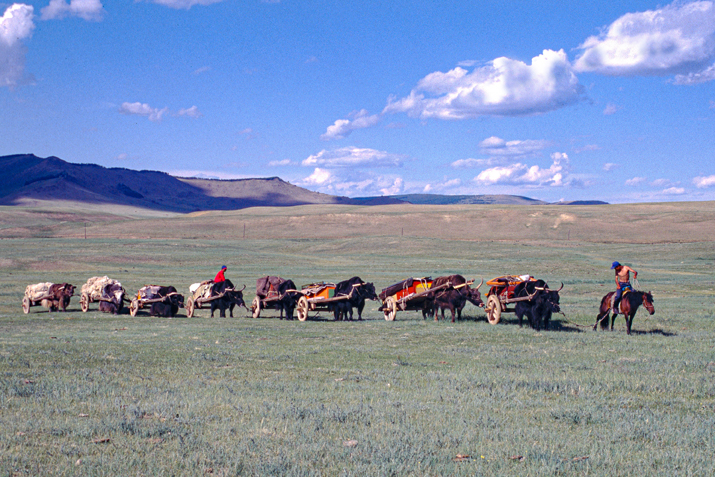
From now on, reporting will continue at regular intervals
N 49°38'671'' E 100°11'496''
Day: 76-79
Sunrise:
07:28/07:33
Sunset:
18:44/18:38
Total kilometers:
777
Soil condition:
Dust/gravel
Temperature – Day (maximum):
15°C
Temperature – day (minimum):
10°C
Temperature – Night:
0° to minus 2°
Latitude:
49°38’671”
Longitude:
100°11’496”
Maximum height:
1220 m above sea level
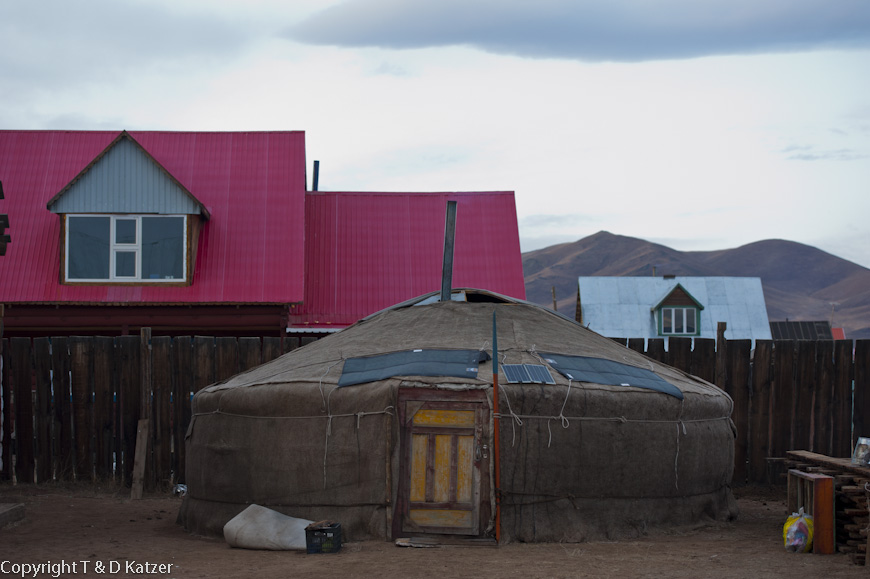
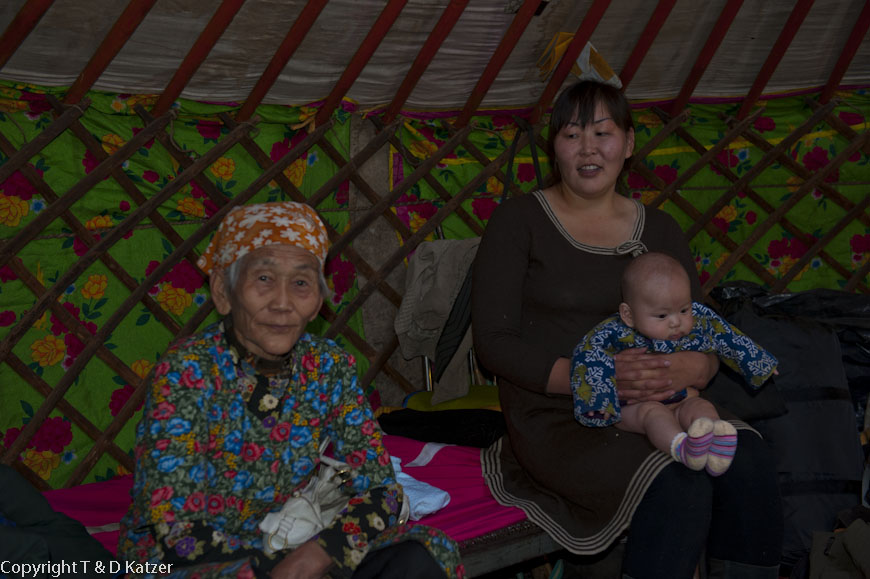
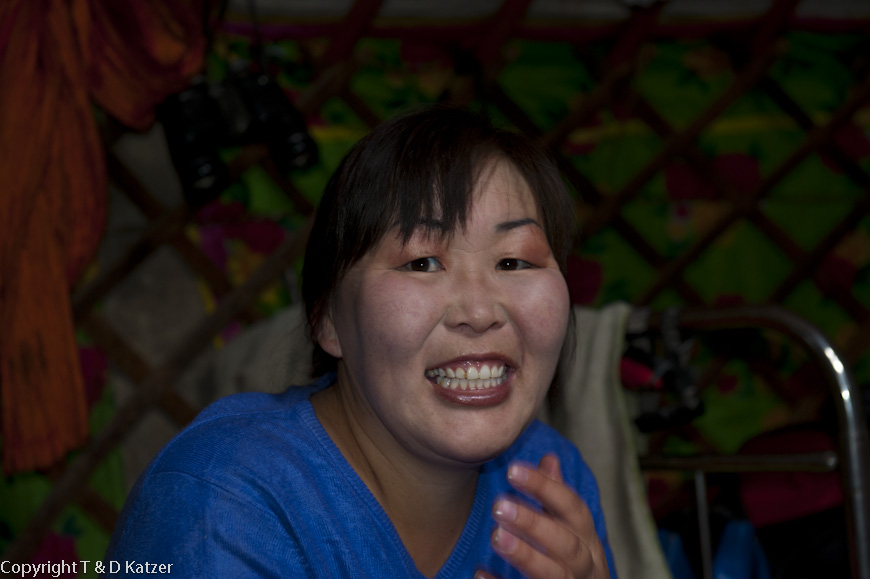
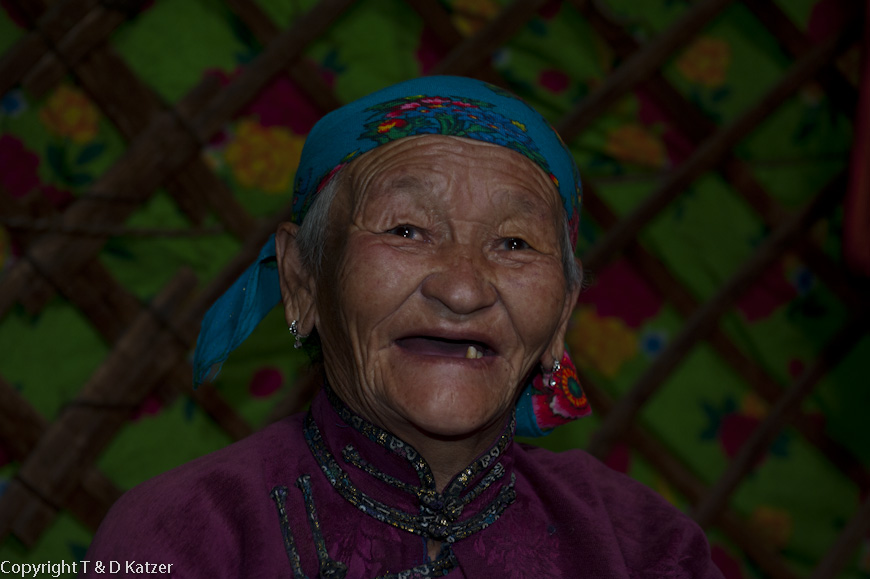

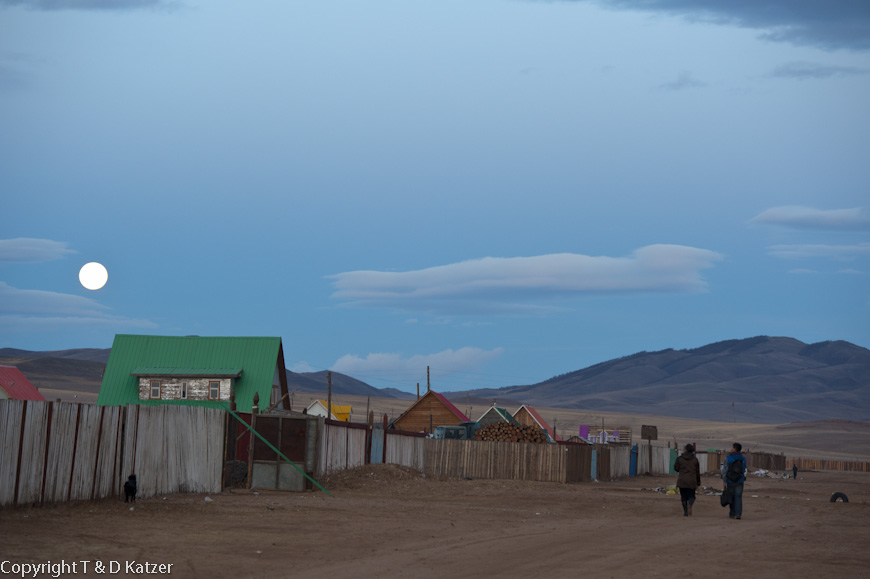

Shower experience
The days go by faster than we would like. The density of preparation requirements is so enormous that we are under time pressure despite working 10 hours a day. Nevertheless, we must not completely neglect our bodies and want to treat them to some water to cleanse them after weeks of abstinence from washing. We sit in a completely overcrowded minibus and bump over the potholes of the dusty dirt roads of Mörön. The windows are open. This means that all occupants are powdered by the dust blowing in. “It doesn’t really make sense to take a shower, but maybe you can keep the thick layer of dirt on your skin under control,” I joke as the brakes squeal on the old bus. We get out and ask a couple of young people about the town’s public shower facility. We understand “Med ügüj” (“I don’t know”). I then form a shower head with my right hand and hold it over my head. I make the sound of rushing water and when that’s not enough I pretend to soap my body with my left hand. “Ha, ha, ha,” the young men laugh and point with their fingers to a narrow path that squeezes through two huts. We say “Baierlaa” (“Thank you”) and find a stone-built cottage a few hundred meters further on. “That could be it,” I say, pointing to the sign written in Mongolian. “And that’s supposed to be enough for an entire city?” wonders Tanja. “Who knows who among the locals can afford a shower,” I reply. “People will probably wash themselves at home,” Tanja replies as we enter the municipal public shower. A resolute lady immediately forbids us from filming. Apparently it is a remnant of the communist era when people were not allowed to photograph or film public buildings for fear of the threatening West. We answer with a laugh and switch off the camera. We are then led into one of the four shower cubicles, which also date back to a time when the iron regime ruled. For reasons of space, Tanja and I have to move into the run-down room together. A rusty iron heater hangs on the mold-infested wall. Rusty hooks do not invite you to hang up your clothes. The paint is peeling off the small wooden bench. Sitting on it is not recommended under any circumstances. We twist and turn in the cramped chamber to remove our clothes from our bodies and hang them on the uninviting hooks. Then we stand under the shower whose water nozzle looks something like the hand I used to imitate the shower head a few minutes ago. I turn the broken iron wheel and wait for the longed-for hot water to flow out of the fiddly shower head above me. But the only thing that comes out is a rapid succession of hot drops. “Uhaa!” I shout in shock as one of the drops hisses on my skin. I immediately turn the chicken and add some cold water. But the old cogs here don’t seem to have the same attitude, because suddenly ice-cold water shoots down on us. “Man oh man, what a shower experience!” I exclaim with a laugh. After warm water finally trickles out of the pipe, Tanja and I take it in turns to jump under the stream and try to get rid of the dirt from the last few weeks. It takes 30 minutes until we feel reasonably clean and leave the steaming cabin again. In the neatly cleaned corridor in front of the four shower cubicles, there are a few lockable closets and a small mirror from which red-faced, soon-to-be-unknown faces shine out at us. We say goodbye to the boss, who now even manages a smile. As soon as we reach our old yurt, we are covered in the finest dust from top to bottom. “Let’s go and have a shower then,” jokes Tanja.
Muzzle and Mogi’s endless bag of tricks
To prevent Mogi from biting more sheep and goats in the butt, I bought a muzzle at the market yesterday. As it was designed more for a lion than a dog, I found a cobbler who made it smaller so that it would also fit medium-sized dogs. “Come on Mogi. The muzzle may not be pretty but it gives you relative freedom. If you wear it well, you can hunt through the steppe without a lead in future,” says Tanja and slips the leather mesh over his muzzle. Mogi looks at Tanja with sad eyes and immediately tries to slip the thing off with his paws. When we let him go, he jumps back and forth like a madman, throws himself nose first into the ground and plows the dust with it as if he wanted to create a field in a short time. “Ha, ha, ha, that’s incredible. We should film that!” I shout, holding my stomach with laughter. It only takes a few minutes until the muzzle is hanging from his throat and Mogi jumps triumphantly towards us. Wagging his tail, he now stands next to Tanja and seems to be grinning all over his face. “Well, I solved that task quickly. Don’t you think so?” he seems to bark with a proudly swollen chest. Now our idea machine Bilgee comes into play. He knots the muzzle to Mogi’s collar in such a way that even the best escapee has no chance of cracking it. Mogi starts again with the same action as before. Only this time he does it even more wildly. He jumps into the air with all fours, whirling around his own axis so fast that the centrifugal force alone hurls the muzzle away. Then he slams his muzzle into the dust of Saraa’s yard and plows it all the way to the front gate. Once there, he tears at the obviously very annoying muzzle with both paws. With the muscular strength of a freedom-loving Tibetan monastery guard dog, the thick leather collar seems to stretch so much that he actually manages to get his mouth free. Slightly out of breath, he looks at us with a grin and comes towards us again, wagging his tail. “You’ll have to come up with something better than that. I can handle challenges like that with ease,” he barks at us again. “It’s probably a Chinese muzzle. It’s just no good,” I suspect, scratching my head. Bilgee smiles conciliatory and moves on to the third act. Once again he ties the muzzle to the collar, which is now tighter. To make sure that Mogi has no chance of success this time, he also pulls two leather straps up to the dog’s chest harness. “There, that should do it,” says our horseman with satisfaction. After the first desperate, powerful attempts and the centrifugal force trick, Mogi actually seems to give up. He lies down on the ground, defeated, and remains stock-still. The dog, who had just been agile and full of life, has become a tired heap of misery. “Well, you’ll get used to it,” Tanja comforts him. Mogi, whose muzzle is now pulled up to his eyes, blinks sadly at us. “Now he won’t tear any more sheep. That’s a great relief,” I say happily. We watch him for a while and then turn our backs on him to go into the yurt. Mogi rises like an old man and trots after us. Suddenly a powerful beam of energy seems to hit him. He leaps into the air as usual and whirls around in a colossal spin. But this time the centrifugal force doesn’t manage to loosen the connection by even a millimeter. Then comes the plow trick. Much longer and worse than before. However, when he arrives at the gate, his entire head is covered in dust but the muzzle is where it belongs. Now the relentless, the unyielding one uses the muscle power of his two front legs and claws into the annoying leather with the toes of his paws. He tugs and tugs. You’d think he’d break a few of his toenails. The muzzle gets longer and longer, but he can’t get it over his muzzle. “Knots that control horses are just too strong for you!” I shout at him. Mogi now starts the same game all over again. Whirling, plowing and tearing for all he’s worth. And, lo and behold. It doesn’t hold. The muzzle hangs on his chest again. Panting a little, he jumps towards us as if nothing had happened. “A nice game. What are we going to do next?” he barks loudly and persistently. “Definitely a Chinese production! That’s a real piece of shit! Bought to throw away!” I curse loudly. “What are we going to do now?” asks Tanja, “I don’t know. I’ll think of something. I’m cleverer than a dog,” I say, letting it go for today.
The firewood issue
In the evening, when Bilgee is back in the pasture with the horses, we discuss further steps for the coming winter in the taiga with Saraa. “We need to think about where we can get firewood for you,” she considers. “Firewood? Why? Is that difficult?” I wonder, startled, as the taiga is the largest contiguous area of coniferous forest on earth. “Could be. The inhabitants of Tsagaan Nuur cut their wood in the fall. When it snows a lot, wood is hard to come by.” “There’s forest everywhere. Why is it difficult to get at it?” “They must be dead trees. You need dry wood for heating. Freshly felled wood is not suitable.” “That makes sense. But why is there no dead wood in winter?” “When the trees are covered in snow, it’s harder to find and reach them. But I’ll ask my cousin Ayush. Maybe he can get some wood. His son has the Russian truck with which he will drive you over the Shishged as we discussed. I’ll call him right away,” she says and types the number into our cell phone. “No problem at all. We can get wood. But please transfer the money in advance,” we hear with relief. “How much does a truck full of wood cost?” I ask. “Here in Mörön approx. 400,000 tugrik (€229). Because of the amount of wood in Osttaiga, only 80,000 tugrik (€46). “And how much wood do you think we need for one winter?” “Ayush thinks two truckloads are enough.” “Two trucks? That’s a lot of wood.” “Yes, but it often gets below minus 50 degrees there. So you have to heat the stove all the time.” “Is there any wood at the Tsaatans?” asks Tanja. “No, the Tsaatans also lay in their winter supplies early and fetch the dead, dry trees with their reindeer. If you get there in December, it might be difficult to get firewood. It’s better if you bring it with you.” “That means we would not only have to transport our equipment and shelter across the river in a truck, but also at least 1 ½ loads of firewood?” I ponder. “That would be the best and safest option. We just have to ask Ayush what he charges for a return trip across the river to the nomads’ winter camp,” Saraa ponders. “Don’t you think the Tsaatans will try to steal our wood?” “Could be. You have to take that into account. Here in Mörön, wood theft is the order of the day.” “Well, that’s a reassuring prospect,” groans Tanja. Due to the late hour, we are postponing the cost of truck transportation until tomorrow. “We’ll manage,” Saraa says confidently as she leaves our yurt. “I hope so. There are a lot of challenges to overcome that we wouldn’t have dreamed of. But with your help, I’m sure we’ll make it,” I say and fry fresh fish from Tsagaan Nuur again.
The next morning we talk to Bilgee about the coming cold. “If you like, we can buy you a deel. Saraa has found one lined with fur. Would you like to try it on?” asks Tanja. “Gladly,” he replies with a laugh and slips into his heavy coat. “It’s beautiful but too short for me. You don’t need to buy me a Deel. You already spend enough money. I’ll get one myself,” he replies modestly. Because of our sometimes unpleasant experiences in money matters, we are pleasantly surprised to hear such words from a Mongolian. As we don’t want to persuade him, we leave it at that. There’s no point in buying an expensive deel that he then doesn’t like.
Fuss over an old chair
In the afternoon, Tanja and I go to the market again. We’ve been looking for a store where you can buy camping chairs for days. Time and again we were unsuccessful. Today, however, we find it. Unfortunately, the selection is a disaster. There is just one dirty, partly broken specimen that has been here for years. “We definitely need a chair for you. You can’t spend three quarters of a year sliding around on your knees,” I say to Tanja, who looks at the sad-looking object skeptically. Because of all the errands and the seemingly endless preparations for our winter stay, I sink wearily into the old camping chair. Tanja makes herself comfortable opposite me on a sofa that is also no longer fresh. We now sit almost apathetically in a kind of Mongolian furniture store and keep quiet. After half an hour, I say: “We should make a decision. Sitting around here is definitely not going to get us anywhere.” “That’s right. Should we buy the chair or not?” “How should I know? It’s all about your chair.” “I can’t make up my mind.” “That’s the problem.” “Well then, you decide.” “Oh man. I have a folding chair that’s also a few years old and doesn’t look very good either,” I say, wanting to close my eyes and take a nap. In the meantime, the salesman has come by several times. He probably wonders about the Europeans who make such a fuss about such a ridiculous chair. “How much is this old thing supposed to cost?” I finally say. “25,000 tugrik (€14.28). But you can buy it for 20,000 tugrik (€11.42). “20,000 tugrik for the broken chair?” Tanja wonders, to which the salesman raises his eyebrows a little and disappears again. After another quarter of an hour, I say: “We really should make a decision. Otherwise I think it’s going to be a bit awkward.” “I don’t care. I’m really tired. Let them think what they want,” Tanja replies. “Hm.” “Who knows how many thousands of people have already put their butts in there. And then I’m supposed to use it for seven or eight months?” “If it lasts that long.” “Well, if it doesn’t, you’ll just have to fix it.” “Exactly. We’re buying another run-down thing, probably made in China, just so I can repair it,” I reply, annoyed. “You don’t always have to pick on China. I’m sure they do good things too.” “Well, I haven’t heard anything about that here yet. But you’re right. At least Air China has given us a lot of free baggage.” “That’s right. So leave the Chinese out of it.” “It’s not about the Chinese, it’s about this stupid chair. Do you want it or not?” “I have no idea. You decide,” our conversation seems to be going round in circles. I get up to look over a sideboard that is also a little battered. When I see the young salesman, I try to smile and give him a friendly wave. “So how much is this chair going to cost?” I ask again. 25,000 Tugrik. But 20,000 tugrik for them,” he replies kindly. “He’ll be delighted if he can sell this bad investment,” says Tanja. “It must be a bad investment. Otherwise it wouldn’t be standing around here for years,” I reply. “We’re not paying 20,000 tugriks for a bad investment. Ask if you can get it for 15,000 Tugrik?” “Why don’t you ask him? I just can’t negotiate anymore,” I say, smiling at the seller as friendly as possible. “We’re paying 15,000 tugrik and not a penny more,” Tanja says to the man, pointing to the worn seat, the torn armrest and backrest and the loosening screws. “Okay, you can have it for 15,000 tugrik,” he replies without having to think twice. “But that was quick. I think we set the price too high,” says Tanja. “It doesn’t matter. At €8.57, we can’t go wrong,” I decide. “That’s right. Maybe we should buy some nice fabric at the market that I can put in it. And if you fix it for me, I’m sure you’ll be jealous of my beautiful chair.” “That may well be the case. I hope I can sit in it from time to time?” “Maybe,” Tanja replies with a laugh. When we want to pay after an hour, we ask if there is a bag for the camp chair. “It got lost,” apologizes the salesman. Before we can change our minds, he storms into the back of the hall, rummages around a bit and brings two small bags. He puts one over one side of our achievement and the other over the other. “So, here’s your bag,” he says with a smile. We say thank you and leave the store with the dingy seat tucked under our arm. “Maybe we should buy a proper wooden table and two sturdy wooden chairs for our yurt after all. I’ve seen something on the market,” I think. “Hm, I don’t think we should skimp on that.” “I’ll go back to the market tomorrow and have a look at the table,” I reply and feel some energy rising in my body again.
We look forward to your comments!

